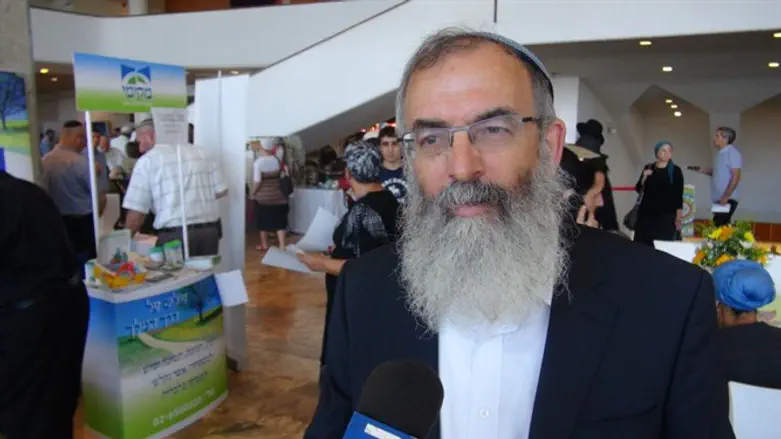
The chairman of the Tzohar rabbinical organization, Rabbi David Stav, responded to the arrest of four rabbis on suspicion of fraudulently obtaining police "fitness certificates" testifying to a criminal-free past that would enable them to qualify for the post of "City Rabbi."
The rabbis were released to house arrest last night.
"I hope that they will be found innocent and that this desecration of God's name will disappear and be corrected," Rabbi Stav told Arutz Sheva. "However, if [these allegations] are proven to be correct, then it is a very serious matter. These tests are taken by very talented young men after they study up to five years. It is impossible to pass these tests after a week. In that way they are similar to medical tests."
"I do not want to generalize, and I am sure that there are hundreds of young men of all shades who work night and day to study honestly. But there are certain groups that have an ax to grind with the rabbinate. They do not believe in the institution. They do not want to teach Torah to Israel. But they want to receive these coveted roles.
"It's a pity that such people can fit into the system," Rabbi Stav said. "They see the rabbinate as a power they want to achieve at any cost, even if they didn't take the required tests. This is disturbing. These are important roles, which sometimes rise to the level of judge. What example to people like this present?"
He welcomed the rabbinate's decision to transfer responsibility for the tests to an outside party. "This is the correct step which the rabbinate has begun to undertake - that an external company will examine the tests, and that there will be full transparency on the quality of the tests and the accessibility of the examiners. The examiners should be anonymous and not like politicians or activists."
According to Rabbi Stav, the process of selecting city rabbis is deeply flawed and plagued by rampant politicization. "We must not appoint a leader over a Community without first consulting it," he said, referencing a phrase in the Talmud (Brachot 55a). Just as a kibbutz or a moshav in which the rabbi is elected through a vote of community members, there must be a mechanism on behalf of the public from which the rabbi of the city is chosen."
"It can not be that a group of officials in the Religious Affairs Ministry and in the religious council and in some other place will decide for the sake of an entire city who will be the rabbi," Rabbi Stav stressed.